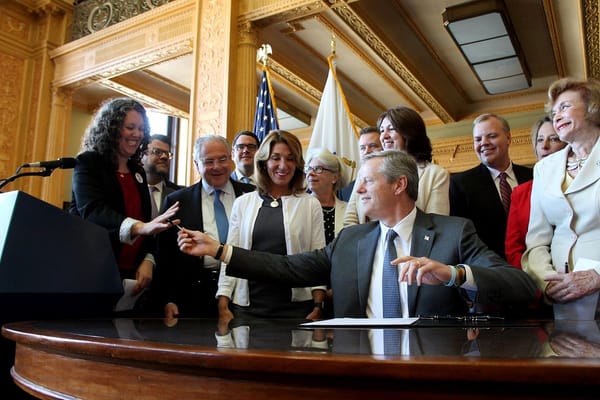How High Is Too High? Diehl, Lindstrom Hit Elizabeth Warren Over Vague Answer On Taxes

Massachusetts Republican candidate Geoff Diehl taunted incumbent taunted U.S. Senator Elizabeth Warren over how high federal personal income tax rates should be, harping on Warren's refusal to give a top figure during an interview earlier in the week.
"What's the number, Senator Warren? Is it 50 percent? Is it 60 percent? Is it 70 percent? Is it 80 percent? Is it 90 percent?" Diehl said outside a Warren campaign event in the South End of Boston on Saturday, according to his campaign. "How much do we have to pay in income taxes in Warren's world?"

